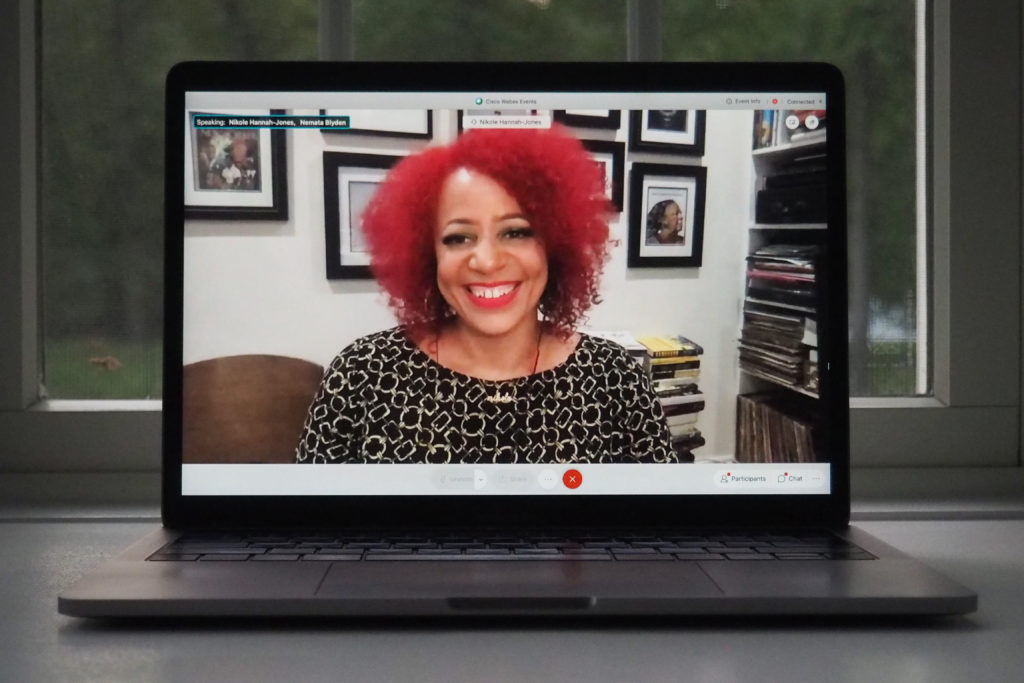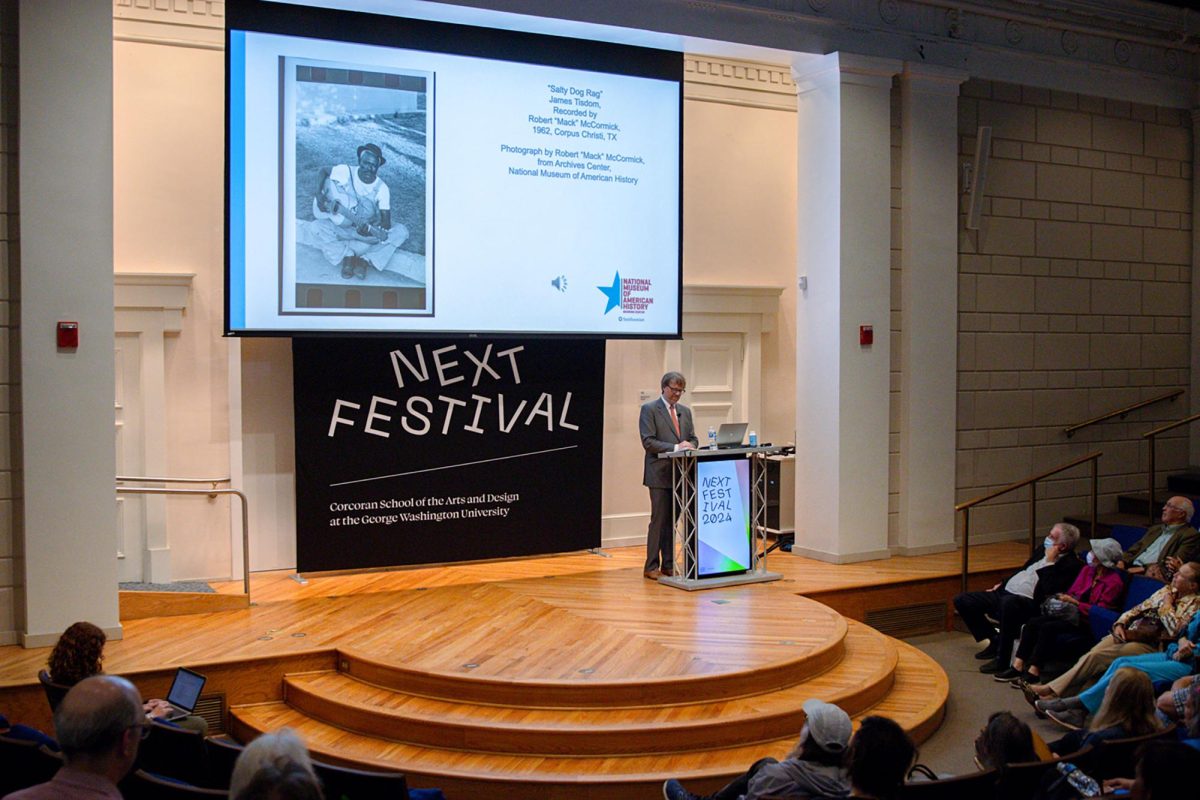The Office for Diversity, Equity and Community Engagement hosted a webinar on a journalism initiative highlighting African American history as part of the “Race in America” speaker series Tuesday.
The webinar featured award-winning investigative reporter Nikole Hannah-Jones as she discussed her work with the New York Times Magazine’s 1619 Project as well as feedback on the project. Nemata Blyden, a professor of African and African Diaspora history, moderated the event.
Hannah-Jones founded the initiative in August 2019 to commemorate the 400th anniversary of the arrival of slavery in what would become the United States, aiming to reexamine slavery’s modern legacy and reframe the way the public understands the contributions of Black Americans to the country.
Hannah-Jones said since its publication, the project has been adapted into a podcast and transformed into a school curriculum for K-12. The project has also faced criticism by some historians who reject the project’s emphasis on anti-Black discrimination as a founding element of the creation of the United States.
Hannah-Jones said she welcomes criticism of her work as she perceives the project to be a form of “activism.”
“If the 1619 Project came out into the world and there was no one pushing back against our argument, then I would have considered I failed because my arguments were too weak or comforting,” Hannah-Jones said. “The nature of activism is to cause discomfort to the status quo and to challenge those who want to maintain the status quo.”
Blyden said President Donald Trump recently announced that his administration would look into defunding the California Department of Education for including the project’s curriculum materials into the public education system.
Hannah-Jones said she was surprised that a year after its publication the project has become the “boogeyman” of the U.S. presidential elections but said she is happy that Trump’s attacks on the project have publicized it to a wider audience.
“The president has now spread the year 1619 to all of his followers, and whether his followers read a single word of the project or not, they now know that 1619 is a date of importance,” she said. “They now know that 1619 is the beginning of American slavery, and I actually think that is a beautiful unintended consequence of what he has done.”
Hannah-Jones added that while she did not intend for the project to create a curriculum, she is most “proud” of this accomplishment. She said it provides an opportunity for learning about American history in a way that is no longer “demeaning” to Black people, Indigenous people and people of color.
“What I hope that educators get out of the project is that it should lead us to question the narratives we have,” Hannah-Jones said. “How do we know the things that we know? Who decided that we should know them? I understand that it is going to introduce children to a different understanding of our country and themselves.”
Hannah-Jones said it can be difficult for society to “grapple” with the nation’s complicated history, especially when it comes to addressing historical monuments or private institutions named after historical leaders with complex historical legacies like GW.
She advised students not to “dampen” their “sense of righteousness” when approaching their activism but to be selective about the matters they can most effectively change.
“You’re not going to rename George Washington University because George Washington University wasn’t named after him because he was an enslaver,” she said. “It is named after him because he was the first president of the United States. But the question is what we then do with that? How do we contextualize this history?”








